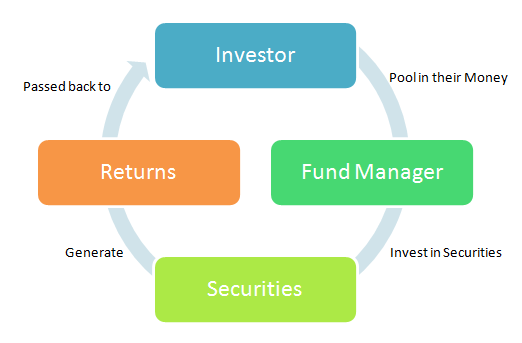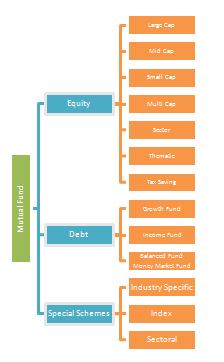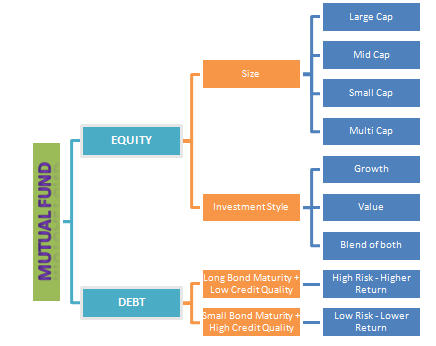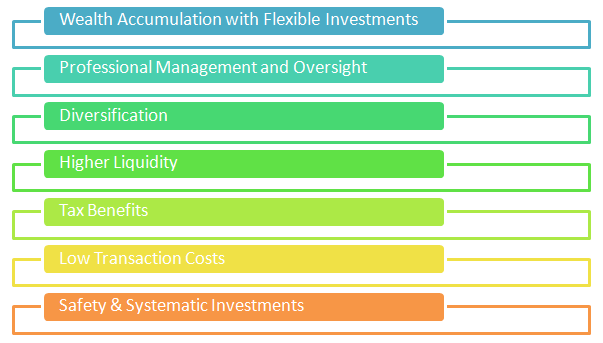Mutual Funds
The money pooled in by a large number of people (or investors) is what makes up a Mutual Fund. This fund is managed by a professional fund manager.
It is a trust that collects money from a number of investors who share a common investment objective. Then, it invests the money in equities, bonds, money market instruments and/or other securities. Each investor owns units, which represent a portion of the holdings of the fund. The income/gains generated from this collective investment is distributed proportionately amongst the investors after deducting certain expenses, by calculating a scheme’s “Net Asset Value or NAV. Simply put, a Mutual Fund is one of the most viable investment options for the common man as it offers an opportunity to invest in a diversified, professionally managed basket of securities at a relatively low cost.
Mutual fund explained Graphically

Various types of Mutual Fund schemes exist to cater to different needs of different people. Broadly speaking they can be categorised in 3 segments.
- Equity or Growth Funds
- These invest predominantly in equities i.e. shares of companies
- The primary objective is wealth creation or capital appreciation.
- They have the potential to generate higher return and are best for long term investments.
- Examples would be
- “Large Cap” funds which invest predominantly in companies that run large established business
- “Mid Cap” funds which invest in mid-sized companies.
- “Small Cap” funds that invest in small sized companies
- “Multi Cap” funds that invest in a mix of large, mid and small sized companies.
- “Sector” funds that invest in companies that are related to one type of business. For e.g. Technology funds that invest only in technology companies
- “Thematic” funds that invest in a common theme. For e.g. Infrastructure funds that invest in companies that will benefit from the growth in the infrastructure segment
- Tax-Saving Funds
- Income or Bond or Fixed Income Funds
- These invest in Fixed Income Securities, like Government Securities or Bonds, Commercial Papers and Debentures, Bank Certificates of Deposits and Money Market instruments like Treasury Bills, Commercial Paper, etc.
- These are relatively safer investments and are suitable for Income Generation.
- Examples would be Liquid, Short Term, Floating Rate, Corporate Debt, Dynamic Bond, Gilt Funds, etc.
- Hybrid Funds
- These invest in both Equities and Fixed Income, thus offering the best of both, as well as .Growth PotentialIncome Generation
- Examples would be Aggressive Balanced Funds, Conservative Balanced Funds, Pension Plans, Child Plans and Monthly Income Plans, etc.
- Other Funds
- Fund of Funds (FoF)
- Exchange Traded Funds (ETF)
- Gold ETF
- International Funds
- Arbitrage Funds
Graphically

Mutual Fund by Category:

Why should you invest in Mutual Funds?

For more details on mutual funds and investment assistance, seek an appointment or reach out to us on details under contact.